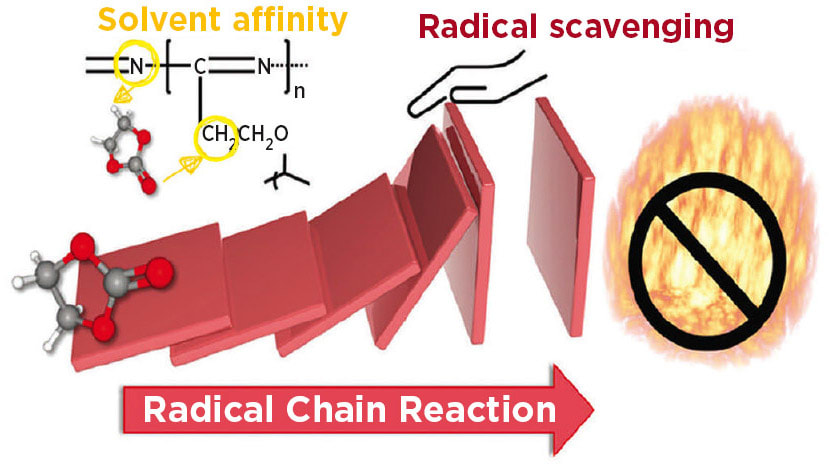
A collaborative research team, led by Professor Hyun-Kon Song in the School of Energy and Chemical Engineering at UNIST, Dr. Seo-Hyun Jung from Research Center for Advanced Specialty Chemicals at Korea Research Institute of Chemical Technology (KRICT), and Dr. Tae-Hee Kim from the Ulsan Advanced Energy Technology R&D Center at Korea Institute of Energy Research (KIER), has achieved a groundbreaking milestone in battery technology. Their remarkable achievement in developing a non-flammable gel polymer electrolyte (GPE) is set to revolutionize the safety of lithium-ion (Li-ion) batteries by mitigating the risks of thermal runaway and fire incidents.
In the past, the potential flammability of Li-ion batteries has raised significant concerns, especially in electric vehicles, where fire hazards pose a serious threat to underground parking lots. Addressing this critical issue, the research team has successfully developed a groundbreaking non-flammable polymer semi-solid electrolyte, offering a promising solution to mitigate battery fires.
Conventionally, non-flammable electrolytes have heavily relied on the incorporation of flame-retardant additives or solvents with exceptionally high boiling points. However, these methods often resulted in a considerable decrease in ion conductivity, compromising the overall performance of the electrolyte.
In their breakthrough research, the research team introduced a trace amount of polymer into the electrolyte, creating a semi-solid electrolyte. This novel approach dramatically increased the Li-ion conductivity by 33 percent compared to existing liquid electrolytes. Moreover, the pouchtype batteries incorporating this non-flammable semi-solid electrolyte exhibited a remarkable 110 percent improvement in life characteristics, effectively preventing unnecessary electrolyte reactions during the formation and operation of the solid-electrolyte interphase (SEI) layer.
The key advantage of this innovative electrolyte lies in its exceptional performance and non-combustibility. By suppressing radical chain reactions with fuel compounds during the combustion process, the polymer semi-solid electrolyte effectively inhibits the occurrence of battery fires. The research team demonstrated the excellence of the developed polymer by quantitatively analyzing its ability to stabilize and suppress radicals.
Jihong Jeong (School of Energy and Chemical Engineering, UNIST) said, “The interaction between the polymerized material inside the battery and volatile solvents allows us to effectively suppress radical chain reactions. Through electrochemical quantification, this breakthrough will greatly contribute to understanding the mechanism of non-flammable electrolytes.”
Co-first author Mideum Kim, a master student in the School of Energy and Chemical Engineering at UNIST and the Korea Research Institute of Chemical Technology (KRICT), further confirmed the exceptional safety of the battery itself through various experiments. The team’s comprehensive approach included applying the non-flammable semi-solid electrolyte to pouchtype batteries, ensuring the evaluation of electrolyte non-combustibility extended to practical battery applications.
For more information, contact UNIST Public Relations at

